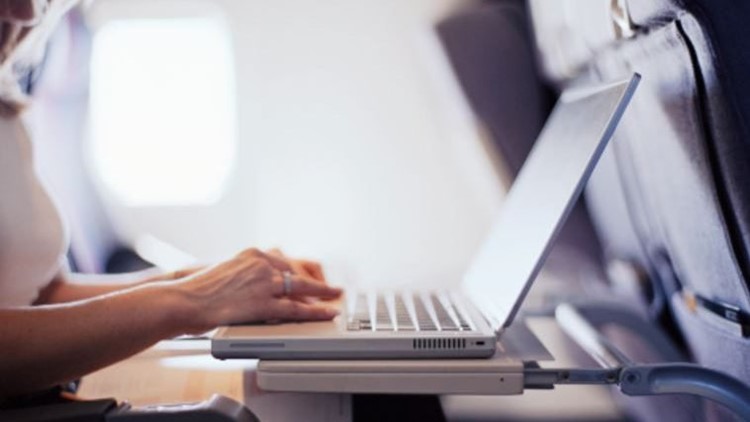WASHINGTON — A proposed ban wouldn’t allow you to bring laptops or other larger electronics on certain flights, you’d have to check them instead.
In April, we first reported that US intelligence and law enforcement agencies believed that ISIS and other terrorist organizations had developed new ways to place explosives in laptops and other electronic devices to evade airport security screening methods. US intelligence suggested that terrorists had obtained sophisticated airport security equipment that allowed them to test how to effectively conceal explosives in electronic devices, we reported at the time.
That intelligence led the Trump administration to ban travelers flying out of 10 airports in eight countries in the Middle East and Africa from carrying electronic devices larger than cell phones aboard planes. The United Kingdom, which possessed the same intelligence, placed a similar prohibition on passengers flying from six countries, including two that were not on the US list.
Officials told CNN that the ban came about following the collection of intercepted material and “human intelligence.”
Now, the Department of Homeland Security is reportedly considering expanding the electronics ban to flights from Europe to the United States.
European Union and U.S. transport and security officials will meet in Brussels on Wednesday to discuss expanding the ban on laptops and tablets to include planes from Europe.
European Commission spokesman Margaritis Schinas said Monday that the high-level talks are “to jointly assess any new threats and work toward a common approach to address them.”
Department of Homeland Security Deputy Secretary Elaine Duke is expected to lead the U.S. delegation.
Alarmed at the proposal, which airline officials say is merely a matter of timing, European governments held talks with their U.S. counterparts on Friday.
The ban would affect trans-Atlantic routes that carry as many as 65 million people a year on over 400 daily flights, including business travelers who use laptops to work in-flight.
Both CNN and AP contributed to this report.



